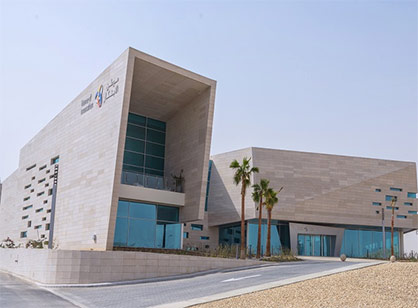#Recycling / Circular Economy
SABIC-BASF Forum highlights joint efforts to transition toward a circular economy for plastics
This invitation-only event virtually took place from SABIC’s Home of Innovation in Riyadh, which BASF recently joined as a partner.
Both companies have been working on complementary solutions to help address the challenges around end-of-life plastics, including advanced recycling which turns mixed waste plastic into virgin polymers.
The Forum provided the parties with an opportunity to exchange learning and jointly agree on driving circular economy solutions that close the loop and would see post-consumer plastic waste collected, recycled and used to make new products.
Key topics of discussion included ways to increase the recycling rates to increase the supply of recycled plastic and further drive the demand for recycling facilities.
During the Forum, SABIC experts highlighted the company’s innovative TRUCIRCLE™ solutions, which encompass its circular products and services including certified circular polymers from the advanced recycling of used and mixed plastic, certified bio-based renewable polymers, certified renewable polycarbonate (PC), and mechanically recycled polymers.
SABIC and Plastic Energy are constructing the first commercial unit in Geleen, The Netherlands, to produce SABIC’s flagship certified circular polymers, part of the TRUCIRCLE™ portfolio, which are made from the upcycling of mixed and used plastic.
“TRUCIRCLE™ has been introduced as a way to collectively showcase our circular innovations and help manufacturers reduce plastic waste through the adoption of a range of sustainable material solutions. It forms part of our circular economy business and is aligned with the UN Sustainable Development Goal of Responsible Consumption and Production,” said Mark Vester, SABIC’ Global Leader Circular Economy.
BASF experts highlighted BASF’s ChemCycling™ project, a key pillar of its circular economy strategy, which develops a pyrolysis technology that turns plastic waste into a secondary raw material called pyrolysis oil. BASF also highlighted how its plastic additives facilitate mechanical recycling of plastics.
“Forging a path to a circular economy requires collaboration,” said Dr. Udo Huenger, Vice President Middle East & Egypt, BASF. “There is an increasing pressure regarding recycling targets and recyclability on the one hand and a strong commitment of our customers towards increasing the share of recycled materials in their offerings on the other hand. Solving these challenges requires innovation and joint efforts from industry and value chain partners.”

He added: “This Forum allowed BASF and SABIC to explore ways in which we can cooperate and accelerate technology development that will divert plastics from going to landfills or end up in the environment.”
Dr. Abdulwahab Al-Sadoun, Secretary-General of the Gulf Petrochemical and Chemical Association (GPCA) talked about closing the gaps in the circular economy and reduced polymer-based pollution.
Dr. Abdullah AlSebaei, Chief Executive Officer at National Center for Waste Management, discussed the Kingdom’s waste management objectives aligned with Saudi Vision 2030.
A select number of SABIC and BASF value chain partners also attended the Forum.












